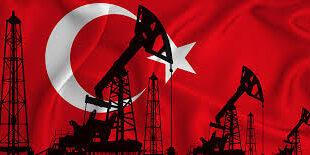After over a year of pandemic-driven volatility and weak oil demand, Saudi Arabia is now experiencing an oil export boom.
Saudi Arabia’s oil exports increased in March by 75 percent year-on-year, at a value of almost $14 billion, according to a General Authority for Statistics (GASTAT) report, with crude oil accounting for 70 percent of the country’s total exports.
Low demand, which drove down oil prices, was extremely detrimental for the world’s largest oil exporter, which saw exports drop sharply throughout 2020. However, the country’s oil industry has been on the up since late last year when oil prices began to stabilize as pandemic restrictions eased.
Non-oil exports also rose by 43 percent in March, up to $5.96 billion, representing the highest level since July 2018. Exports comprised mainly of medical instruments, clocks and watches, plastics and rubber, and vehicles, aircraft, vessels, and associated transport equipment.
OPEC + is scheduled to meet next week, led by Saudi Arabia and Russia, to discuss oil output increases, following a strict production quota earlier in the year, as well as the potential impact of an Iran nuclear deal on production levels.
Michael Lynch, president of Strategic Energy & Economic Research explained, “The overall mood in the market is moderately bullish,”. In addition, “People are looking at a stabilized market for the near-term,” with the demand recovery continuing to shape up, “but with Iranian supply coming back, that puts a cap on things.”
Following successes in vaccination rates across the U.S. and Europe, traders are positive about an oil demand increase throughout the summer months, even if Iranian output increases with the easing of U.S. sanctions.
On June 1, OPEC + is expected to approve the 840,000-barrel-a-day increase planned for July, which will bring an end to the three sets of output increases this year, aiming to recover 2 million barrels by the summer, in line with the demand increase.
Predictions are based on the positive trend in oil demand as well as prices, with Brent on target to close at a two-year high. Brent prices have steadily increased from $66.85 on Monday to $69.69 this Friday, slowly edging its way to $70 a barrel.
Eugen Weinberg, a Commerzbank analyst, stated, “Boosted by good economic data and risk appetite among investors on the financial markets, Brent is making a renewed bid for the psychologically important $70 per barrel mark”.
Weinberg also believes the demand-drop prediction in relation to the Covid-19 pandemic has been overstated, “Concerns about demand because of the pandemic are giving way to optimism in view of the rapid return of consumers”.
According to predictions, oil demand could bounce back to 100 million bpd in the third quarter of 2021, as travel increases, and pandemic restrictions continue to be eased.
Gasoline demand has already risen this year and is expected to increase further as the newly vaccinated seek to move away from national restrictions and take to the roads to resume normal activities as well as travel.
President Biden’s American Job Plan also appears to be helping the stabilization of oil demand, in the world’s second-biggest oil-importing country, as unemployment has fallen, providing people with more disposable income as well as the need to commute, after a year of stagnation.
As Saudi Arabia reports record oil export levels, OPEC + is expected to continue easing its quotas to resume greater production activity across its member states and allies, as a sharp demand recovery is expected for the summer months.

 Iran Energy News Oil, Gas, Petrochemical and Energy Field Specialized Channel
Iran Energy News Oil, Gas, Petrochemical and Energy Field Specialized Channel



